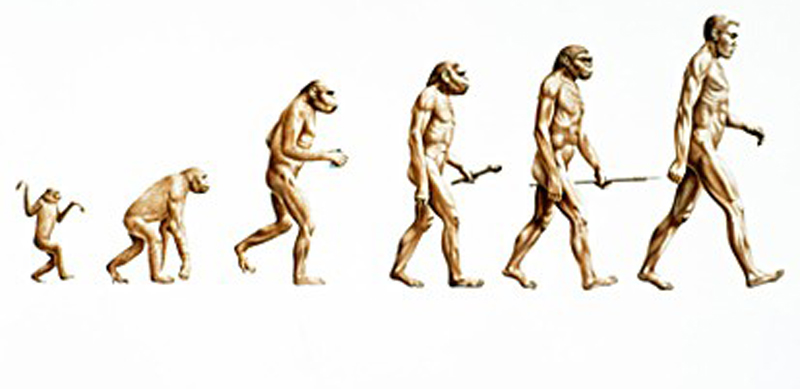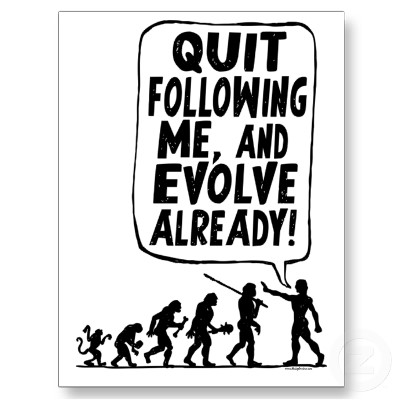Did a God or Gods create the universe? EDITED
-
@unknownuser said:
Such a waste of precious educational resources/ time.
I agree. . .I've been following this thread from a distance. . . .a long distance. . . interesting thoughts on both sides and eventhough this debate has been going on for 2000 years I was absolutely sure that it could all be solved here on the SU forum. It's where I go for answers.

...as this thread keeps repeating . . .Science is of the mind--Faith of the heart. . .and never the twain shall meet? I don't personally believe that, but I believe it's out of my range of knowledge.
So where have you guys landed on this thing?
Any "converts" one way or the other?
No? . .. I thought not.
Maybe Eric (boofredlay) can set up a little speed challenge voting poll thing--each side declare victory. . .and put this one to bed.
 VS
VS
-
You left out this one David

-

-
@unknownuser said:
One thought, though. I find it odd one would even want to suggest faith and science are equally valid in the same way. To my mind, that's a negation of faith's very core: the irrational act of actively embracing a concept one, by definition, cannot proof to be true or even compeletely understand.
I think that the idea that faith is supposed to insinuate a lack of proof is false. When I say I have 'faith' I don't mean that it's in opposition to 'proof.' I mean 'faith' in the sense of 'trust.' It's in a similar sense that I have faithin my doctor to take care of me. It's not in contrast to the proofwhich I have that he'll heal me, but rather because of it (he's done it before, he's taken an oath, he went to school and obtained the necessary knowledge, etc.).
That said, there is a sense in which there's no irrefutable evidence for God. But that's not what I expect to find.
-Brodie
-
@box said:
And where is this historical evidence of the resurrection?
I appreciate the question but honestly I've got little heart to get into it at this point. I don't think anyone here is terribly interested in having the conversation. At this point it feels like too broad a conversation to get into. No doubt we'd need to get into why the gospels are a viable historical source of information, even if we don't accept them as 'gospel' truth. And then we'd have to get into alternative theories. And then we'd get pushed back into arguing the existence of God. We obviously all find that pattern tiresome. While many here seem to have a thorough understanding of the scientific method, I don't see much evidence of a familiarity with the historical method and what the differences are.
-Brodie
-
I am very familiar with the historical method, which is why I asked to see your evidence.
If you are going to point to the bible as your evidence then the conversation is pointless. -
@unknownuser said:
...as this thread keeps repeating . . .Science is of the mind--Faith of the heart. . .and never the twain shall meet? I don't personally believe that, but I believe it's out of my range of knowledge.
Sorry, I just said that one for fun. I think the two operate in separate spheres that can be complimentary, sort of like Brodie's doctor example. There is still a person to person trust relationship, but the doctor better be operating from scientific knowledge, not scripture...
-
@box said:
I am very familiar with the historical method, which is why I asked to see your evidence.
If you are going to point to the bible as your evidence then the conversation is pointless.Well, at least that's a starting point. Before I start spouting random factoids about the Bible, though, is there a specific reason you don't believe that it can be used as a historical source of information? To keep things concise I'd like to stick to the gospels here as it's primarily where we find information on the resurrection.
Edit: one notable exception I probably should have mentioned is 1 Cor 15:3-8 which deals directly with the resurrection and is generally accepted to be a sort of extremely early creed
-Brodie
-
The bible is an historical novel, written by many many people over centuries.
People who have heard stories, people with political agendas, people with their own ideas.
Parts of the bible can be verified as accurate to certain historical events other parts are simple allegory.
There is no doubt the book exists and existed from way way back, but it still a book written by men.If you got a bunch of different people together, some SU novices, some SU experts and some with specific plug-ins to sell and some who just wanted to be there because it felt good, and asked them to edit all the posts on Sketchucation into one definitive book on how to work with SU, you would have a bible. Some of it would be accurate, some would be biased and some would be plain wrong. It would make a great read and people would swear by it because it is written, but it don't make it the inerrant word of Mike Lucey.
So, show me some non biblical evidence.
-
@unknownuser said:
To my mind, that's a negation of faith's very core: the irrational act of actively embracing a concept one, by definition, cannot proof to be true or even completely understand.
An excerpt from an article I've read here: http://www.zeitun-eg.org/thomas.htm
@unknownuser said:
"What's less easy to understand is the thought-out, rational pursuit of God against one's better judgement. Loving God and seeking to serve God against one's interests, plus the sheer difficulty of the attempt to love one's neighbor, is, it seems to me, the best proof of religion."
or just plain faith, IMO.
Then Jesus told him, "Because you have seen me, you have believed; blessed are those who have not seen and yet have believed." (John 20:29)
Pretty well sums it up for me.
Cheers.
-
Box, you're speaking in vast generalities and I'm trying to hone in on something we can sink our teeth into. I think there's some extra-biblical evidence we can talk about but it's not nearly as convincing or persuasive, in my mind, as a good historical look at the evidence within the Bible.
For example, if we dig into 1 Cor 15:3-8 a bit...
@unknownuser said:
For what I received I passed on to you as of first importance[a]: that Christ died for our sins according to the Scriptures, that he was buried, that he was raised on the third day according to the Scriptures, and that he appeared to Cephas,[b] and then to the Twelve. After that, he appeared to more than five hundred of the brothers and sisters at the same time, most of whom are still living, though some have fallen asleep. Then he appeared to James, then to all the apostles, and last of all he appeared to me also, as to one abnormally born.
This is generally believed by historians to be an early creedal statement that dates to within a few years of Jesus' death.
Jesus died in the early 30's and Paul was converted some 3-5 years later. 1 Corinthians was written in the mid 50's putting the statement at MOST about 20 years after Jesus' death. But Paul implies that he 'received' the creed which historians believe to have an Aramaic character which would suggest that it was created at a time when the church was made primarily of Jews rather than gentiles. Based on these and other historical evidences, this points to the very early date of the creed. This counters the notion that the resurrection could have been some sort of later evolution of an idea that developed over time.
Starting here, do you have any disputed on historical grounds?
-Brodie
-
I'm sorry, I see no point in continuing with this.
You believe that what is said in the bible is true, I believe it is the stories of many people and as such is written with an agenda.
We will have to agree to disagree. -
So ... we're backing up the claims made in the Bible by using ... the Bible? This has been an interesting discussion, but it seems we've entered the realm of the absurd now. I'm out.
-
I'm simply suggesting for the sake of the argument that the Bible is a book - a collection of letters, histories, poems, etc. It's illogical to NOT believe something simply because it happens to be in a book you disagree with. I man wrote a letter, we can use the historical method to derive a reasonable estimation as to when the letter was written whether that letter is from Paul, or Plato.
I'm not suggesting that because Paul said it in the Bible, it's true. I'm merely showing that based on the historical method, we can illustrate that this statement was common among Christians within a few years after Jesus' death.
If you understand the historical method then I'll ask that you refute my points from within that method rather than making illogical claims and generalizations. Otherwise, concede the point but tell me why it's irrelevant.
-Brodie
-
@box said:
I'm sorry, I see no point in continuing with this.
You believe that what is said in the bible is true, I believe it is the stories of many people and as such is written with an agenda.
We will have to agree to disagree.see above
-
@box said:
@box said:
I'm sorry, I see no point in continuing with this.
You believe that what is said in the bible is true, I believe it is the stories of many people and as such is written with an agenda.
We will have to agree to disagree.see above
I find your blatant intellectual dishonesty refreshing. It makes the pointless conversations much more short and sweet.
-Brodie
-
You are free to insult me, I have made my points clearly, I have not insulted your intelligence and I have bowed out of the discussion by agreeing to disagree.
-
It's illogical, Brodie, only because of your approach. You are still insisting on standing reason on its head.
You say "It's illogical to NOT believe something simply because it happens to be in a book you disagree with."
That's not the case at all, in fact it's entirely the wrong way round. Those disputing with you don't start from the position of disagreeing with the Bible and thereby disbelieving what is in it. According to historical method, they will be cogniscent of it, but remain duly sceptical until such time as it can be corroborated from another source.
As Box has already indicated, from a historical perspective, parts of the Bible do appear to have some basis in historical/archaeological fact. Other parts are equally contrary to scientific evidence; and yet other parts are likely to remain forever entirely speculative.
Calling people intellectually dishonest because they refuse to engage in your peculiar brand of 'logic' is fooling no one. I too am done discussing with you.
-
@unknownuser said:
So ... we're backing up the claims made in the Bible by using ... the Bible? This has been an interesting discussion, but it seems we've entered the realm of the absurd now. I'm out.
Let us assume that there is no Bible, because many countries do not have it ...!
Let us suppose that we have no consciousness, because many persons ‘violate’ it…!…But the NATURE remains, and it says a lot…
Since the creation of the world, God’s invisible attributes are clearly seen, being understood by the things that are made, even His eternal power and Godhead, so that all of us are without excuse, on our attitude regarding the rejection of the Creator… -
@box said:
You are free to insult me, I have made my points clearly, I have not insulted your intelligence and I have bowed out of the discussion by agreeing to disagree.
Sorry Box, I'm a bit snarky today and that probably was said in frustration. I kind of felt like you bait and switched me a bit there by asking the question and referring to your knowledge of the historical method and then summarily rejecting a historical text after I'd put together what I feel was a thought out and reasoned response.
-Brodie
Advertisement







